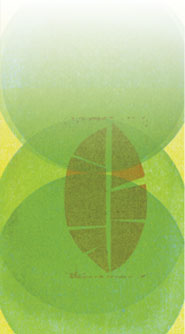

|
||
Cross Case Features: TeachersLincoln High School: Social StudiesBill Barrett, Modern World HistorySusan Park, one of the Modern World History teachers, convinced first-year teacher Bill Barrett to take the seminar with her. Although Bill hadn’t studied Asia in college, he was intrigued by a part of the world he’d never visited. Also, as a World History teacher, Bill wanted to supplement the Euro-centered curriculum mandated by the state. On his summer vacation, Bill followed up the chronologically organized seminar with a trip to China where he traveled and gathered artifacts to share with his World History students at the high school. On his trip to China, Bill Barrett used the knowledge he’d gained in the NCTA seminar to identify objects to bring back for his class. He says that his students—most of whom struggle academically—have been“ very receptive to the visual stuff, the things that you can see or touch or hear.” After the trip to China, he “book-ended” his immersion in Asian Studies by attending a thematically organized summer institute on China at a university. The seminar gave Bill Barrett the historical background he needed to understand the modern history which is their main focus in high school. He also used the web site of Japanese block prints which the seminar leader created and some of the textbook information on how to understand Japanese art. He spent his NCTA stipend on Spotlight on Japan, a curriculum guide that comes with slides. Besides his appreciation for the books he received, he’s been pleased with getting on mailing lists that include other professional development opportunities. Bill plans to try out Susan Park’s lesson plan on the philosophical differences between Mao and Gandhi (see “Susan Park” below). Although he wants to include more multi-cultural literature, he is constrained by the necessity to coordinate his curriculum with that of his co-teacher from the English department. This coming summer, Bill Barrett will go to Africa on a Fulbright fellowship. He doesn’t see his trip to Africa as distracting his attention from Asia, but as opening up a complementary resource. He is interested in participating in the Asian Experience course at the art museum next summer. Mary Hanson, Modern World HistorySocial studies teacher Mary Hanson enrolled in the NCTA seminar out of personal interest and because she felt it was a priority of the social studies department at Lincoln High School. The title alone—“Teaching East Asian History”—attracted her to the class because it seemed tailored “for teachers who wanted to apply it to their classes.” She applied the credits earned in the NCTA seminar to her Master’s degree. Mary Hanson and an English teacher team-teach Modern World History. They work with students who have struggled academically. She found that the seminar opened up new topics to discuss with her students. “Whereas last year we never talked about the religious philosophies of China and East Asia, this year we touched a little bit on Confucianism, Buddhism, Shintoism, and Taoism—far more, I think, than they had ever been exposed to before. They thought it was fascinating.” As with any outside material she uses, she has had to adapt it to the needs of her students. “If I were to give it straight to the kids, it would be way over [their] heads. So I do a lot of modifying, simplifying.” The level of her students made some of the middle school lesson plans very applicable to her Modern World History class. “Some of the [middle school lesson plans] may not have directly applied to my grade level or even my subject, but I could still twist them and tweak them as needed.” In fact, she found the creation and sharing of lesson plans the most useful part of the seminars. Susan Park, Modern World HistorySocial Studies teacher Susan Park took the first seminar led by Jerome Wilkins. She also convinced her colleague Bill Barrett, a first-year teacher at Lincoln High School, to take it with her. Two years later, they persuaded another Social Studies teacher to participate. Susan Park liked the seminar leader’s posting of lesson plans on the seminar web site and the mix of elementary, middle, and high school presentations by fellow participants. Susan Park teaches two required classes: a Modern World History course where some Asian content is required and a Government course where Asian content is not required. In the Government course, she only rarely uses Japan/China as an example of a contrasting political system. Because Susan Park does not team with an English teacher to teach Modern World History, she has more freedom to bring Asian studies into this course. She devotes one month in the fall semester and a month to six weeks in the spring semester to Asian studies. She has her students compare China with India on philosophies of leadership and economic development. Students also debate the dropping of the atomic bomb—and share their thoughts with the Japanese exchange students at the school.
|
||
